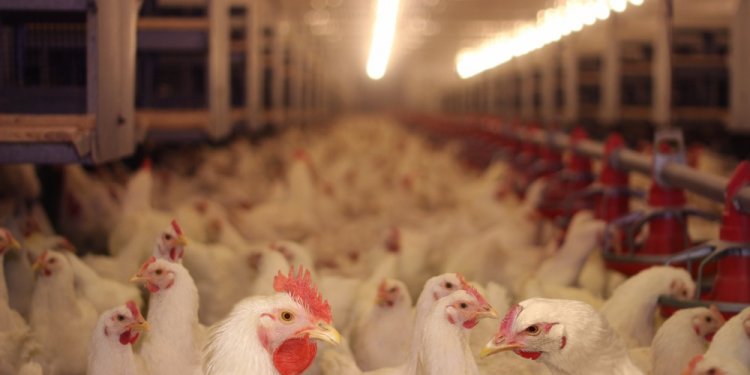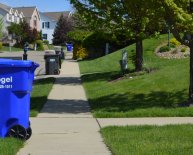
Chicken Waste Disposal
Nitrogen and phosphorous runoff from agricultural activity is a major source of water pollution in many parts of the country. In the Chesapeake Bay watershed, half of the phosphorous and 40 percent of the excess nitrogen result from agricultural runoff, leading to algae blooms and destructive conditions for the bay’s legendary fish, oysters, and crabs.
A report from the Pew Charitable Trusts on the chicken industry, published over the holidays to little notice, identifies a significant contributor to the problem and proposes a useful solution.
Almost all chickens raised for meat today are grown under contracts between growers and large companies such as Tyson, Pilgrim’s, and Perdue. The chicken grower agrees to raise the company’s birds, using feed and drugs also supplied by the company. At the end of the contract the company picks up its chickens, leaving the grower with the manure and litter, and the responsibility to get rid of them.
In the past, and to a limited degree today, spreading chicken manure on farm fields was an acceptable practice. But in places with concentrated chicken operations, such as Maryland’s Eastern Shore, local fields are already saturated with fertilizers, and spreading manure on them is usually not a responsible option. Farm fields are also disappearing in the wake of housing development.
With limited options and resources for chicken growers — 71 percent of growers without other incomes are below the poverty line — lots of manure ends up in our waterways, whether through neglect or deliberate dumping.
At present, inadequate disposal of chicken waste constitutes a significant cost to society in the form of degraded waterways and the expensive public efforts to clean them up. No responsible party has the incentive, much less the resources, to deal with the waste properly. This is a classic collective action problem.
The Pew report identifies a sensible solution that could be a game changer if adopted into law. The big chicken producers, which own everything else in the chicken operation save the buildings and the waste, would have responsibility for the manure as well. The manure is already geographically concentrated because the companies typically restrict their contracting to a reasonable distance from their processing plants, in order to minimize trauma to the birds as they are taken to slaughter.
The suggestion that Tyson and the other companies at least share responsibility for the manure makes sense from this point of view. Because disposing of the waste would be a significant liability for the companies, it would also be a problem worth solving. If the companies owned the manure, they would have strong incentives to build processing plants to convert it to fertilizer, electricity, or other productive uses.
This is not a far-fetched suggestion. Perdue already operates such a plant in Delaware, which has processed about 650, 000 tons of raw litter since it was built 13 years ago, producing certified organic fertilizers for the general market.
The suggestion should appeal to conservatives as well as liberals. By reallocating the costs of waste disposal to the companies, in whose interest the waste is generated in the first place, the proposal creates incentives for market-based solutions without restricting production or dictating any particular regulatory requirement.














